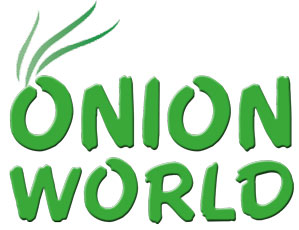|
Click to listen to this article
|
By Sabrina Fisher, Director of Marketing & Communications, Texas International Produce Association
South Texas, renowned for its fertile soils and the Texas 1015 sweet onion, is facing a tough growing season as a water shortage grips the region. This crisis is the result of dwindling rainfall, increased demand, and a critical issue: the lack of water deliveries from Mexico under the 1944 Water Treaty.
Understanding the Water Crisis
The 1944 Water Treaty between the United States and Mexico mandates that Mexico deliver an average of 350,000 acre-feet of water annually to the Rio Grande system. This water is vital for South Texas agriculture, but inconsistent deliveries in recent years have exacerbated the water shortage, leaving irrigation districts and farmers struggling to sustain crops.
“The lack of water deliveries from Mexico is having a compounding effect,” said Bret Erickson, executive vice president of business affairs at Little Bear Produce and chairperson of the Texas Vegetable Association (TVA). “We’re already dealing with reduced rainfall, and without these treaty obligations being met, our ability to plan and grow is significantly impacted.”
Impact on Texas Onions
Despite the water shortage, planting acreage for Texas onions has remained consistent this season. However, many growers planted their fields knowing they had access to only one irrigation cycle and were relying on rainfall to sustain the crops. Unfortunately, with rainfall falling short, growers anticipate lower yields as the lack of water takes its toll during critical growth stages.
“While there will still be Texas onions this year, we expect supplies to be lighter,” said Dante Galeazzi, president and CEO of the Texas International Produce Association (TIPA). “Farmers took a calculated risk planting under these conditions, but without sufficient water, yields will inevitably be affected.”
Collaboration for Solutions
TIPA is actively working with state and federal organizations, as well as other key industry players, to address the water shortage. Efforts are focused on raising awareness about the importance of honoring the 1944 Water Treaty and working toward a resolution that ensures consistent water deliveries from Mexico.
“This is not just an agricultural issue; it’s a matter of economic and environmental sustainability for the entire region,” Galeazzi said. “We’re advocating for stronger partnerships and solutions that secure the future of South Texas agriculture.”
Resilience Amid Adversity
Despite the challenges, Texas onion growers are adapting. Many are investing in innovative water-saving technologies like drip irrigation and refining soil management practices to maximize efficiency. Others are collaborating with researchers and policymakers to navigate these difficult times.
Looking Ahead
As TIPA continues to advocate for long-term solutions, the hope is that increased collaboration and policy action will ensure a more sustainable future for Texas agriculture. In the meantime, South Texas growers remain committed to producing the quality onions that consumers know and love, even under tough conditions.
Let’s support our farmers, celebrate the resilience of the Texas onion industry and work together to secure sustainable water solutions for the years to come.

